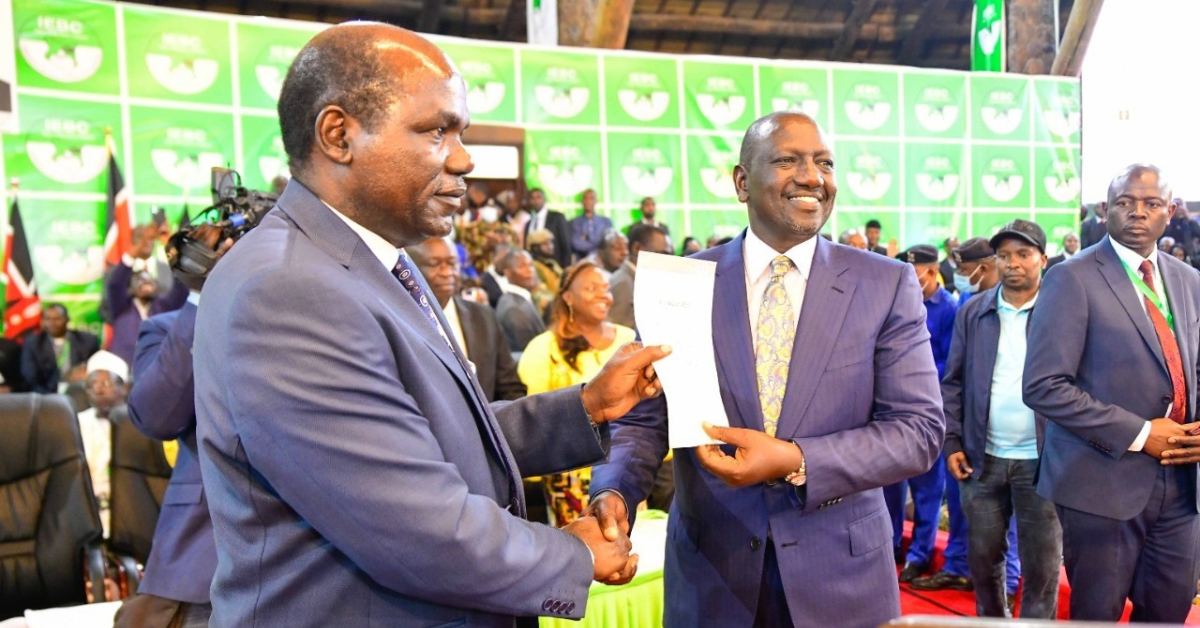Do you sometimes, like me, suffer from bouts of irrational exuberance as regards Kenya’s future prospects in the war against corruption?
Watching Mumo Matemu take the oath of office as the new Ethics and Anti-corruption Commission (EACC) boss, I felt a fever of irrational exuberance.
Mr. Matemu said, “We shall not tolerate any acts of corruption and shall make sure Kenyans enjoy socio-economic rights as stipulated in the Constitution.” He was clearly echoing his boss, President Uhuru Kenyatta, who three months earlier, on the occasion of the opening of the 11th Parliament, said: “I will act swiftly to end the scourge of corruption. Corruption makes our country less attractive as an investment destination. It limits access to much needed services, stifles efficiency and eats away at public values.”
Taken together, these statements had the effect of raising my irrational-exuberance to fever pitch. I knew then that I needed a cure. It is called corruption reality check.
About a decade ago, in December 2002, President Kibaki lifted the mood of the entire country when he said: “Corruption will now cease to be a way of life in Kenya and I call upon all those members of my government and public officers accustomed to corrupt practice to know and clearly understand that there will be no sacred cows under my government.”
Six months earlier iIn the same year, here is how President Moi put it during a rally in Kamukunji grounds. “KANU is fighting corruption at all levels of government and I urge wananchi to join the government in this fight.”
This was one of many of such pledges made by Mzee Moi throughout his 24 year reign.
President Jomo Kenyatta had no such pretensions about corruption. He made no promises or efforts because for him the line between corruption and reward for post-colonial fruits of the struggle for independence were completely blurred. Once when faced with mounting criticism by the likes of Bildad Kaggia, Jaramogi Oginga Odinga and Josiah Mwangi Kariuki, he was stern and blunt in his warning: “We will crush you into flour. Anyone who toys with our progress will be crushed like locusts.” As we recall, Oginga and Odinga ended up rotting for many years in detention while JM Kariuki became dinner for Hyenas in Ngong Forest. Bildag Kaggia got the famous “what have you done for yourself?” tongue lashing. He dared question the land-grabbing mania that was happening at the expense of the landless ex-Mau Mau freedom fighters.
This is strong medicine for any bout of irrational exuberance. But there is even stronger medicine. Consider the following acts of corruption. If these do not cure your ailment, nothing else will. (They are on the Mars Group Website).
Anglo Leasing: The Anglo Leasing scandal is a web of deceit involving 18 security contracts. An estimated 56.3 Billion Kenya shillings was stolen from the Kenyan taxpayers by well-connected, unnamed persons during the tenure of Presidents Moi and Kibaki.
The Ndungú Report: This was the product of many months of expensive inquiry – by a 20-member commission – into ‘stolen’ public land. It was chaired by lawyer Paul Ndungu. It is the most comprehensive report on corrupt allocation of public land ever prepared. A decade after it was published, not much has been done to implement its recommendations.
Goldenberg: This is the gold standard of scandals (pun fully intended). It involved fictitious Diamond and Gold exports by Kamlesh Pattni and the robbing of the Kenyan tax payer to the tune of Kenya shillings 70 Billion. It happened on President Moi’s watch but has remained unsatisfactorily unresolved to date.
Kroll Report: The Kibaki government commissioned Kroll, an international risk consulting firm, to undertake an expensive sniffing mission in a quest to unearth the extent of corruption perpetrated during the Moi years. The report is said to have exposed a clever web of shell companies, secret trusts and frontmen used to steal hundreds of billions of Kenya’s tax payer’s money. Why has there been such silence more than 5 years after the report was released? Was it merely an extortionist’s tool?
There are others too many to mention. And they continue to be reported and investigated – with nothing coming out of them. Consider a recent report by EACC concerning allegation of procurement irregularities, bid rigging and abuse of office by the Ministry of Information and Communications officials in the procurement of 5000 acres at Malili for an ICT Park at the inflated cost of Kshs 1 billion. In this and many others, the EACC completed its investigations and forwarded the report its recommendations to the Director of Public Prosecutions. That is where the matter ends.
Back to Matemu’s statement above. He can “ensure no acts of corruption are tolerated” – by investigating and presenting reports to the DPP, but he cannot “…make sure Kenyans enjoy socio-economic rights as stipulated in the Constitution.”
So much for irrational exuberance.


